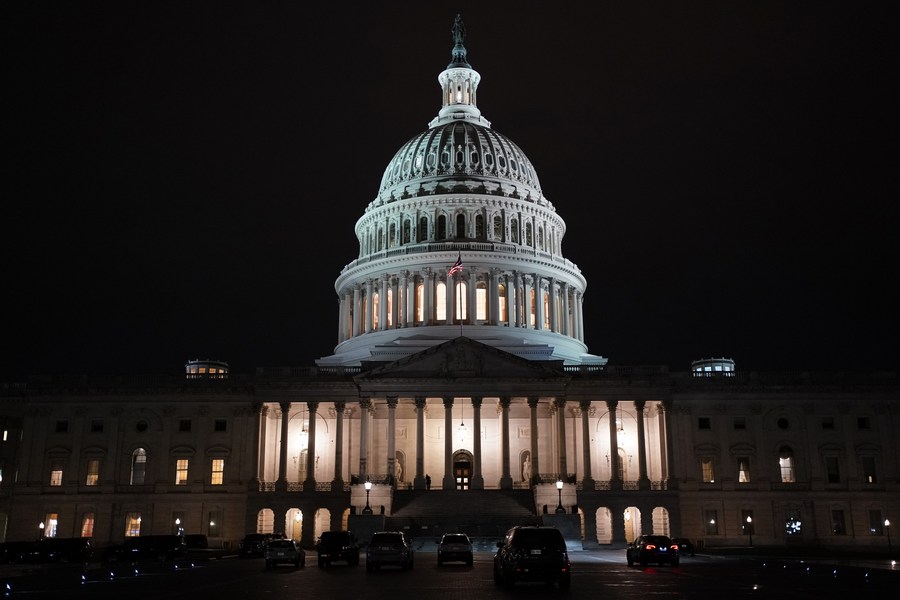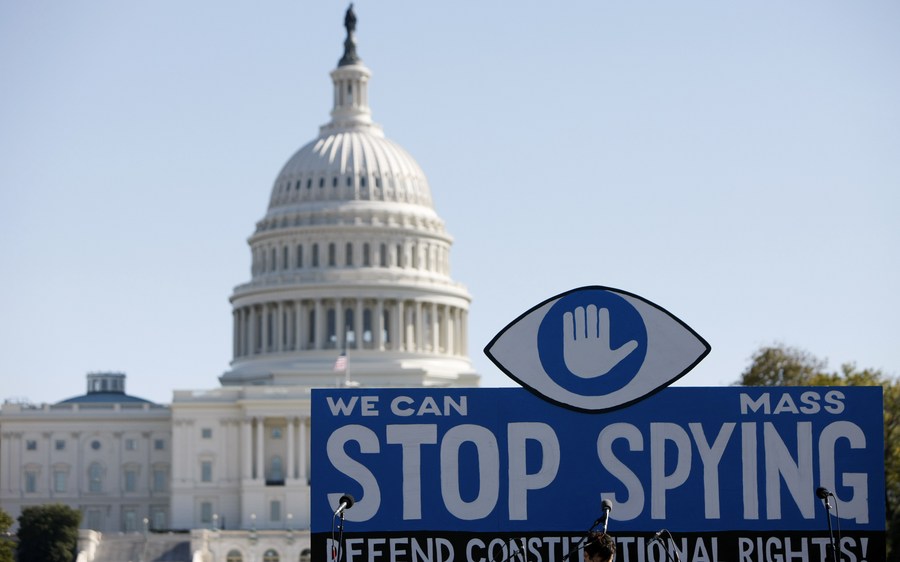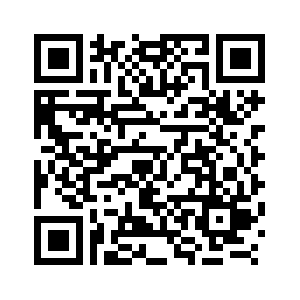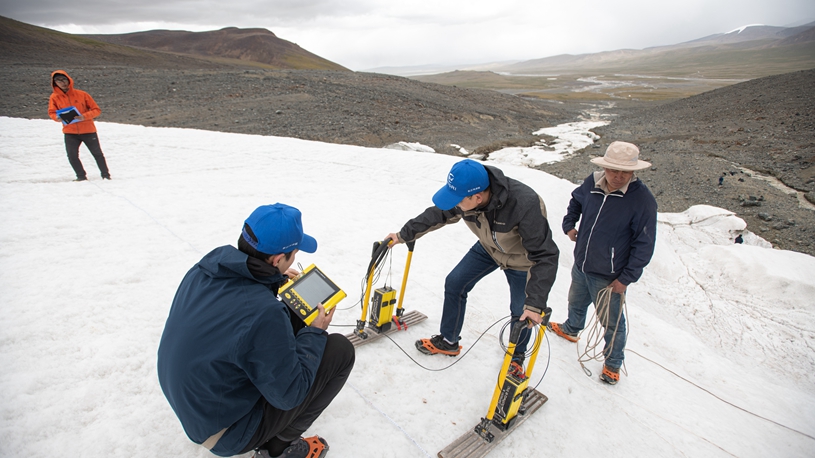
Photo taken on Nov. 19, 2021 shows the U.S. Capitol building in Washington, D.C., the United States. (Photo by Ting Shen/Xinhua)
In 2021 alone, the FBI has conducted up to 3.4 million warrantless searches of Americans' phone calls, emails and text messages, the Hill reported, citing the Office of the Director of National Intelligence.
BEIJING, Aug. 1 (Xinhua) -- For decades, the United States has conducted indiscriminate mass surveillance of its citizens, as well as of foreign governments, companies and individuals.
Various surveillance projects implemented by Washington have been unveiled one after another in recent years, exposing more evidence of America's pervasive and ubiquitous surveillance of the world.
SURVEILLANCE ON DOMESTIC SOIL
According to a recent report by Georgetown University Law Center's Center on Privacy and Technology, the United States Immigration and Customs Enforcement (ICE) has expanded far beyond its role as an immigration agency to become a "domestic surveillance agency."
The ICE has developed a dragnet surveillance system that allows it to collect detailed dossiers on nearly every person in America at any time, without any judicial, legislative, or public oversight, said the report titled "American Dragnet: Data-driven Deportation in the 21st Century."
From 2008 to 2021, the ICE has spent approximately 2.8 billion U.S. dollars on surveillance, data collection and data-sharing initiatives, the report said, noting the agency has been able to access utility record information of over 218 million customers across all 50 states.

A man wearing a face mask makes a phone call in New York, the United States, on Oct. 16, 2020. (Xinhua/Wang Ying)
The ICE is not the only agency in the United States that has overreached its authority and abused citizens' private personal data.
In fact, mass surveillance in the United States has become institutionalized. Following the 9/11 terrorist attacks, the United States enacted numerous laws to expand the government's surveillance powers for national security reasons.
The U.S. Congress greenlighted the Patriot Act in 2001, which covers Section 215, one of the most controversial programs for domestic and international surveillance.
In 2008, Congress approved Section 702 of the Foreign Intelligence Surveillance Act, which allows the government to collect communications concerning foreign intelligence targets without a warrant.
Following the disclosure by former National Security Agency (NSA) contractor Edward Snowden and Wikileaks of the U.S. government's abuse of power to collect millions of Americans' private data, the ensuing public outcry prompted Congress to prohibit the notorious bugging project PRISM.
However, the government actually never stops abusing its power to carry out indiscriminate surveillance on its citizens.
In 2021 alone, the FBI has conducted up to 3.4 million warrantless searches of Americans' phone calls, emails and text messages, the Hill reported, citing the Office of the Director of National Intelligence.

File photo taken on Oct. 26, 2013 shows a huge slogan board stands in front of the U.S. Capitol building during a protest against government surveillance in Washington D.C., the United Sates. (Xinhua/Fang Zhe)
MONITORING THE WORLD
The U.S. surveillance network has spread beyond its borders, targeting not only adversaries but also allies.
In May 2021, Denmark's national broadcaster DR News reported that the Danish Defense Intelligence Service had given the NSA open Internet access to spy on senior politicians of neighboring countries, including then German Chancellor Angela Merkel.
The NSA purposefully obtained data and thus was able to spy on targeted heads of state, as well as neighboring Scandinavian leaders, top politicians, and high-ranking officials in Germany, Sweden, Norway, and France, the report said, which caused global shock and fury.
French President Emmanuel Macron said in May 2021 that this "is unacceptable between allies, even less between allies and European partners," and Merkel said she "could only agree" with Macron's comments.
But that was not unfamiliar to European leaders. In 2013, Snowden revealed that Washington had been spying on the email and cell phone communications of as many as 35 world leaders.
Journalist Glenn Greenwald exposed in his book No Place to Hide that a single unit of the NSA had collected more than 97 billion emails and 124 billion phone calls from around the world in just 30 days in 2013.
The powerful mass surveillance system has helped the United States make profits.
For example, in 2013, reports of the U.S. magazine WIRED surfaced that Brazil's state oil and gas giant Petrobras was a prime target of U.S. government spying activity.
"Washington is losing its moral ground," the German magazine Focus quoted an expert on foreign policy as saying.
With its global surveillance network, "the United States itself is the true eavesdropper," Focus said, though the country prefers to frame itself as a victim of spying. ■












